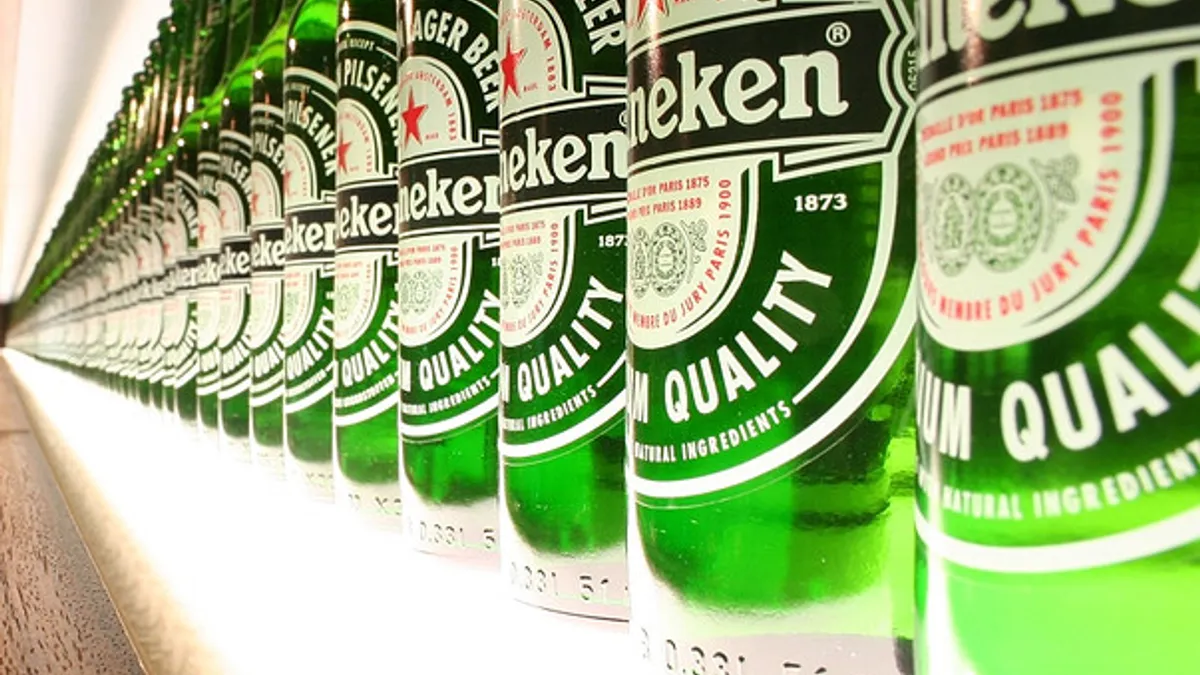Dive Brief:
- Heineken is planning to move its ad-verification process in-house, rather than relying on agencies to monitor and track ads, sources told Digiday. The beer company is holding a global search for an ad verification technology that it can run from each of its markets. Heineken uses Dentsu Aegis and Starcom MediaVest for media buying.
- Moving its ad verification in house means the company will be able to set its own benchmarks for brand safety, fraud and viewability. Before, the company would have relied on agencies to license technology to evaluate their own performance.
- Heineken wants to not only manage its own ad measurement, but also better understand its customers and whether the digital ecosystem is meeting its marketing needs and generating ROI.
Dive Insight:
Heineken’s move to bring its ad verification in-house highlights several challenges that marketers continue to face, specifically measuring ROI and campaign efficacy as well as issues with transparency in digital media. Marketers are increasing their digital ad budgets to meet consumer demand, while feeling the pressure to determine how effective those campaigns are, and many often feel that the results proivided by partners are lacking. Inaccurate, questionable or false digital media reporting has led 21% of marketers to cut their ad spend, a CMO Council report found.
The beer brand isn’t alone in moving all or part of its marketing functions in-house. Several major brands have announced plans to review current agency contracts or revisit their marketing strategies lately. Nestle is reportedly paring down the number of agencies it works with from eight to four to six, following a previous consolidation from 20 agencies to eight in 2014. Longtime WPP client, Ford announced plans to put part of its advertising account up for review to save money and better target consumers. CPG giant Procter & Gamble continues to bring more advertising and marketing in-house, an approach that has been adopted by Unilever as well.
The past few years have been tough for traditional ad agencies, which face ongoing digital disruption, evolving consumer needs, more competition from smaller agencies and allegations of misuse of client fees. Many brands, like Heineken, are re-taking control of their marketing, which they see as a way to save money, oversee creative and keep a better watch over campaign ROI and effectiveness.














